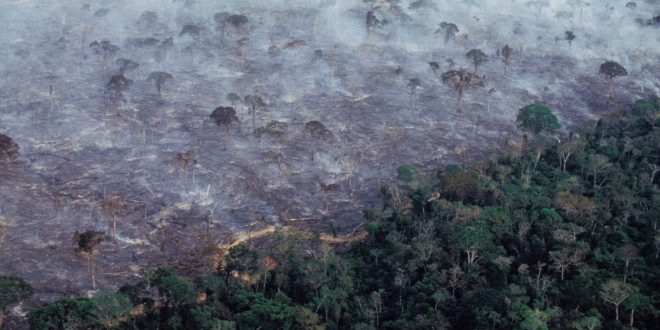Private
According to the authors of a UN report, without proper action to protect wildlife, the number of “zoonotic” diseases which jump from animals to humans, will rise in coming years.
Zoonotic diseases like Covid-19, Ebola, SARS, and West Nile virus are caused by the high demand for animal protein and the destruction of nature by humans. According to the United Nations Environment Programme and the International Livestock Research, the jump of diseases from animals to humans is influenced by the degradation of the environment through wildlife exploitation, resource extraction, intensive and unsustainable farming, land degradation and climate change.
“The primary risks for future spillover of zoonotic diseases are deforestation of tropical environments and large-scale industrial farming of animals, specifically pigs and chickens at high density,” says disease ecologist Thomas Gillespie of Emory University in the US.
The coronavirus is not the only disease that recently killed a large number of the human population. In fact, two million people die every year from zoonotic diseases, mostly in poor countries.
“In the last century we have seen at least six major outbreaks of novel coronaviruses,” said Inger Andersen, under-secretary general and executive director of the UN Environment Programme.
UN experts said the coronavirus outbreak was highly predictable and the UN environment chief, Inger Andersen, added that it may be the worst but it is not the first.
The report indicates that a “one health” approach uniting animal, human and environmental health must be adopted. It is also vital to strengthen the surveillance and research on potential disease threats and the food systems responsible for carrying them to people.
“To prevent future outbreaks, we must become much more deliberate about protecting our natural environment” said Ms. Andersen.
According to the IMF’s chief economist, Covid-19 will cost the global economy $9tn over two years. The world is currently treating the health and economic symptoms of the pandemic, but not its environmental cause. On this matter, Prof Delia Grace, lead author of the report by the United Nations Environment Programme (Unep) and the International Livestock Research Institute (Ilri) said: “There has been so much response to Covid-19 but much of it has treated it as a medical challenge or an economic shock”.
The report urges governments over the world to address the destruction of the natural world in order to prevent more pandemics in the future and offers government strategies for prevention, such as encouraging sustainable land management, improving biodiversity and investing in scientific research.
Directorate of Lebanese Studies and Publications
Romy Harfouche
 Lebanese Ministry of Information
Lebanese Ministry of Information



